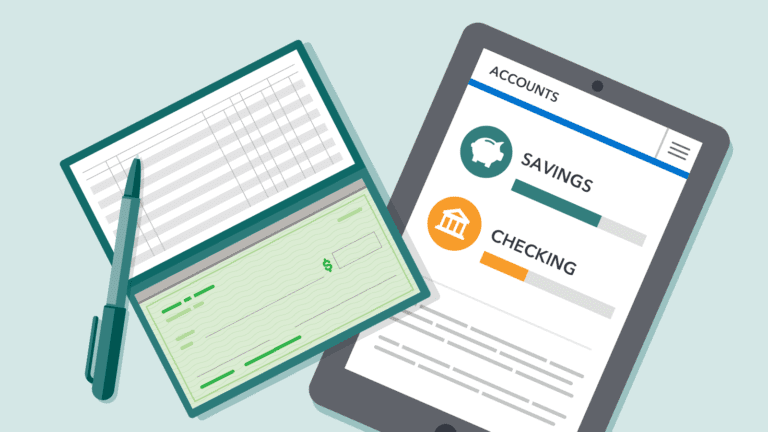Necessary Information for Account Application
Necessary Information for Account Application – opening a basic online bank account in the UK requires careful preparation and understanding of the necessary documentation and eligibility criteria. To begin with, banks typically demand proof of identity and proof of address from applicants. Acceptable forms of identification include a valid passport, a UK driver’s license, or a biometric residence permit. For proof of address, documents such as a recent utility bill, bank statement, or rental agreement are required. It is essential that these documents reflect your current address to effectively verify your identity.
Furthermore, individuals must meet certain eligibility requirements. Most banks in the UK require applicants to be at least 18 years of age to open an account independently, though some institutions offer accounts for those aged 16 or older, often in conjunction with a parental guardian. Additionally, applicants need to have a legal right to reside in the UK, which is particularly pertinent for non-residents or those on temporary visas.
There are several different types of bank accounts available, each catering to specific financial needs. Basic online bank accounts are specifically designed for individuals with simple banking requirements, typically offering essential features such as direct deposits and online transactions without the complexities of overdrafts or credit facilities. These accounts often serve as an excellent starting point for individuals new to banking or those who may have a limited credit history.
Understanding these fundamental aspects of banking in the UK will ultimately help in ensuring a smoother account opening process. It is advisable to check with the specific bank for any additional requirements or restrictions they may have. Doing thorough research will provide a clearer picture of how to effectively navigate the banking landscape in the UK.
Choosing the Right Bank: Factors to Consider
When opening a basic online bank account in the UK, selecting the right banking institution is a crucial step. Various factors must be considered, including fees, interest rates, and the range of services offered. Banks can differ significantly in what they charge in terms of monthly fees, transaction costs, and withdrawal penalties, making it essential to compare these aspects before making a decision. A no-fee account may appeal to those who want to maintain their funds without incurring additional charges, while others might prioritize a bank that offers competitive interest rates on their savings.
Interest rates play a vital role in choosing a bank, particularly for individuals who plan on saving substantial amounts. While many online banks offer competitive rates, they can vary widely, so it’s advisable to assess the terms thoroughly. A higher interest rate means your savings can grow faster, which can be especially beneficial over time.
The available services are another factor to weigh in your decision. Some banks provide basic services such as online transfers and bill payments, while others may offer additional features like budgeting tools or financial planning assistance. Assessing your financial habits can help determine which features are essential for you. Furthermore, investigating customer reviews and overall satisfaction can provide insight into a bank’s customer service and reliability.
It is also important to evaluate the online banking features available. A user-friendly interface can enhance your online banking experience significantly, allowing for easier navigation and transaction management. Many banks offer mobile applications that simplify banking tasks on the go, making it an essential aspect to consider. By carefully weighing these factors, potential account holders can make an informed decision about which bank aligns best with their needs.
Step-by-Step Process to Open a Basic Online Bank Account
Opening a basic online bank account in the UK involves several straightforward steps designed to ensure a smooth banking experience. The first step is to gather the necessary documents required for the application. Typically, you will need proof of identity, which can include a valid passport or a driving license, and proof of address, such as a recent utility bill or bank statement. Ensuring you have these documents ready will expedite the process and help avoid delays.
Once the necessary documentation is prepared, you can proceed to the bank’s website to start the application by selecting the option for a basic online account. The application process usually involves filling out personal information such as your full name, date of birth, and contact details. Be sure to provide accurate information, as discrepancies can lead to complications during verification.
After submitting the online application, you will often be required to verify your identity. This may involve answering security questions or providing additional documents as requested by the bank. The verification process is a crucial step, ensuring that they comply with regulations and protect customers’ information. Generally, it may take anywhere from a few minutes to a few days for the application to be processed, depending on the financial institution.
Once approved, you will receive confirmation via email, along with instructions on how to access your new online bank account. It is important to familiarize yourself with the online banking platform, where you can manage your account, view transactions, and perform other banking activities. Regularly checking your account and understanding the features available will enhance your online banking experience and help you effectively manage your finances.

Common Challenges and FAQs When Opening a UK Bank Account
Opening a basic online bank account in the UK can sometimes lead to various challenges that applicants must navigate. One of the primary hurdles individuals may face is related to their credit history. Banks often assess creditworthiness as part of their application process, which can pose difficulties for those with limited or poor credit history. It is crucial for prospective applicants to understand that each bank sets its own criteria, and having a less than perfect credit history does not automatically disqualify one from opening an account.
Another common issue arises from documentation discrepancies. Applicants must provide specific identification and address verification documents as part of the application process. Inaccuracies, such as mismatched names or outdated addresses, can lead to delays or outright rejection of the application. Therefore, it is advisable to double-check that all documents are accurate and up-to-date before submission.
As applicants navigate these potential challenges, frequently asked questions may arise. One common query is, “Can I open an account if I’m a non-resident?” The answer is generally yes, but this depends on the specific bank’s policies. Many UK banks offer accounts to non-residents, although requirements may differ. For instance, applicants might need to provide additional documentation such as proof of income or residency in another country.
Another question that often surfaces is, “What to do if your application is rejected?” If an application is denied, it is important to contact the bank for clarification. Understanding the reasons behind the rejection can help applicants address any issues. In some cases, individuals may consider opening an account with a different bank, as each institution has its own standards and evaluation criteria.
Necessary Information for Account Application







